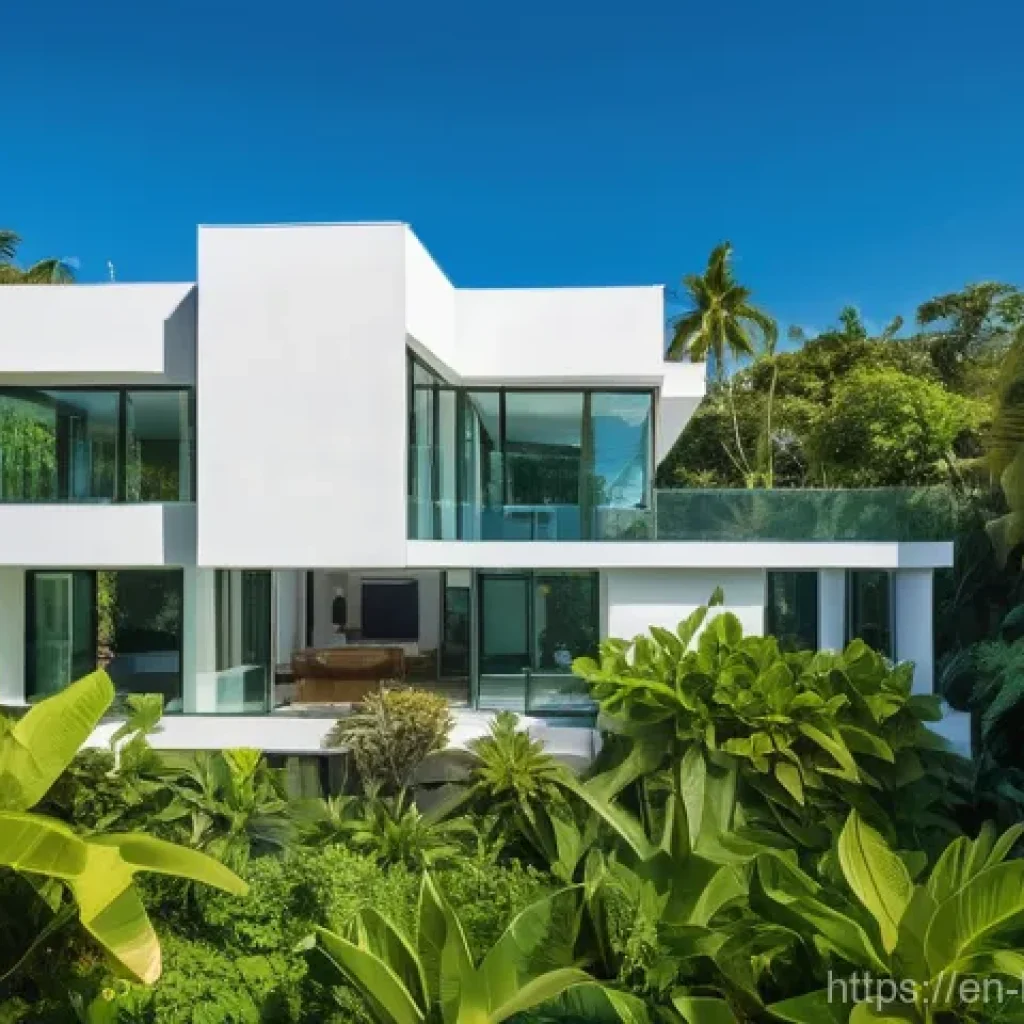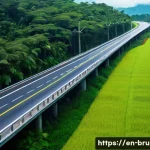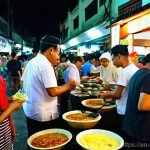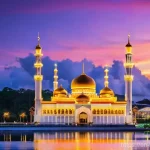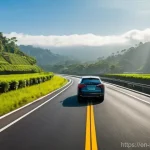You know that feeling when you pull up to the gas station, brace yourself for the pump price, and then just wince? Well, imagine that feeling completely disappearing!
If you’ve ever dreamed of ridiculously cheap fuel, then Brunei is pretty much a paradise. This tiny, oil-rich nation in Southeast Asia boasts some of the lowest petrol prices in the world, thanks to generous government subsidies that make filling up your tank feel like a steal—sometimes even cheaper than bottled water.
It’s truly eye-opening how this abundance shapes everyday life and the nation’s economic landscape, even as the government thoughtfully navigates its future beyond hydrocarbons.
Curious to peel back the layers of Brunei’s fascinating oil economy and what it truly means for the average person and the global energy picture? Let’s dive in and unravel this unique situation together!
You know that feeling when you pull up to the gas station, brace yourself for the pump price, and then just wince? Well, imagine that feeling completely disappearing!
If you’ve ever dreamed of ridiculously cheap fuel, then Brunei is pretty much a paradise. This tiny, oil-rich nation in Southeast Asia boasts some of the lowest petrol prices in the world, thanks to generous government subsidies that make filling up your tank feel like a steal—sometimes even cheaper than bottled water.
It’s truly eye-opening how this abundance shapes everyday life and the nation’s economic landscape, even as the government thoughtfully navigates its future beyond hydrocarbons.
Curious to peel back the layers of Brunei’s fascinating oil economy and what it truly means for the average person and the global energy picture? Let’s dive in and unravel this unique situation together!
Unveiling the “Too Good To Be True” Fuel Prices

The Government’s Generous Hand
Alright, let’s get right into it: how exactly does Brunei manage to keep its fuel prices so unbelievably low? It’s not magic, folks, it’s government policy, pure and simple.
As a nation blessed with significant oil and gas reserves, the Sultanate has long prioritized the welfare of its citizens, and heavily subsidizing petrol is a cornerstone of that commitment.
When I first heard about it, I was genuinely skeptical. You hear about subsidies in other countries, but nothing quite prepares you for the reality of paying mere cents per liter.
It’s a strategic move that reflects the nation’s wealth and its desire to ensure a high quality of life for everyone, making everyday expenses significantly more manageable.
This isn’t just a minor discount; it’s a fundamental part of the economic fabric here, something that profoundly impacts everything from transportation costs to the general cost of living.
It truly reshapes how people budget and plan their daily lives, offering a buffer against global energy price fluctuations that we in other parts of the world constantly fret over.
A Historical Perspective on Energy Abundance
The story of Brunei’s oil wealth isn’t a new chapter; it’s practically the foundation of the modern nation. For decades, the discovery and exploitation of oil and gas have fueled the country’s development, leading to impressive infrastructure and a robust social welfare system.
I’ve spoken with locals who can barely recall a time when fuel wasn’t astonishingly cheap. It’s ingrained in their collective memory and current reality.
This historical reliance on hydrocarbons has allowed the government to build substantial reserves and, in turn, offer these substantial subsidies. It’s a legacy of resource management that has tangible, daily benefits for every citizen.
You see the effects everywhere: large, fuel-inefficient cars are common, and the idea of carpooling purely for gas savings seems almost alien. This isn’t just about cheap gas; it’s about the deep-seated relationship between the nation’s natural resources and the everyday experiences of its people.
The Everyday Impact: Life with Abundant, Affordable Fuel
Cruising Through Life: Daily Commutes and Errands
Honestly, imagine a world where you don’t even *think* about how much it costs to fill up your tank. That’s essentially life in Brunei. I vividly remember my first time driving there; the sheer lack of anxiety at the pump was almost disorienting.
You just fill it up, pay a pittance, and go. It completely changes your relationship with driving. Long commutes aren’t dreaded for their fuel consumption, spontaneous road trips become more feasible, and running multiple errands in different parts of town isn’t a cost-prohibitive exercise.
It’s not uncommon to see people driving luxury vehicles or large SUVs, precisely because the operating cost, specifically fuel, is so negligible. This freedom from fuel price stress trickles down into every aspect of daily life, making things feel a little bit lighter, a little bit easier.
It’s a stark contrast to the almost clinical precision with which I track my mileage and gas expenses back home.
Beyond the Road: How Fuel Costs Affect Goods and Services
The impact of cheap fuel extends far beyond just personal vehicles. Think about it: every good and service has a transportation component. When the cost of moving goods from point A to point B is incredibly low, it inevitably translates into lower prices for consumers.
This is one of those subtle but powerful benefits of Brunei’s fuel policy. While prices for imported goods can still be high due to shipping and import duties, locally produced items, or those with significant local transportation, benefit immensely.
I’ve noticed how this contributes to a generally lower cost of living in some areas, offsetting other expenses. The supply chain feels less burdened by fuel volatility, allowing businesses to operate with a bit more predictability.
It’s an economic multiplier effect that often goes unnoticed by outsiders, but it’s a huge factor in the overall affordability and stability of life within the Sultanate.
A Peek Behind the Numbers: Comparing Fuel Prices Globally
Brunei vs. The World: A Striking Contrast
When we talk about cheap fuel, it’s easy to throw around numbers, but seeing it in context truly hammers home the difference. Brunei’s petrol prices consistently rank among the lowest on Earth, often alongside other oil-producing nations that heavily subsidize their domestic markets.
I’ve put together a small comparison to really illustrate this point, because sometimes you just need to see the data laid out to grasp the scale of the generosity.
It’s not just a little cheaper; it’s orders of magnitude less expensive than what many of us are accustomed to paying. This table, based on recent averages, really tells the story of how unique Brunei’s situation is.
It’s truly a different world when it comes to filling up your tank, making the concept of a “gas guzzler” almost quaint.
| Country | Average Petrol Price (per liter, USD) | Notes |
|---|---|---|
| Brunei | ~$0.35 | Heavily subsidized by government. |
| United States | ~$1.05 | Varies by state, influenced by global markets and taxes. |
| United Kingdom | ~$1.85 | High taxes contribute significantly to pump price. |
| Australia | ~$1.20 | Fluctuates with global oil prices and exchange rates. |
| Norway | ~$2.10 | Major oil producer but high taxes on fuel. |
What Drives the Disparity?
You might wonder, “How can this even be sustainable?” The key lies in Brunei’s domestic production and the government’s direct control over pricing. Unlike many countries that rely heavily on imported refined products and are subject to the whims of international crude oil markets, Brunei produces its own.
This significantly reduces import costs and provides the government with the leverage to set prices at a level that benefits its citizens. Moreover, the political will to maintain these subsidies is strong, as it’s seen as a direct benefit of the nation’s resource wealth.
For many, it’s a social contract, an expectation that the nation’s natural riches will translate into tangible benefits for its people. This unique combination of domestic production, government control, and strong political commitment is what creates such a massive disparity in fuel prices compared to most of the world.
Steering Towards Tomorrow: Brunei’s Economic Diversification
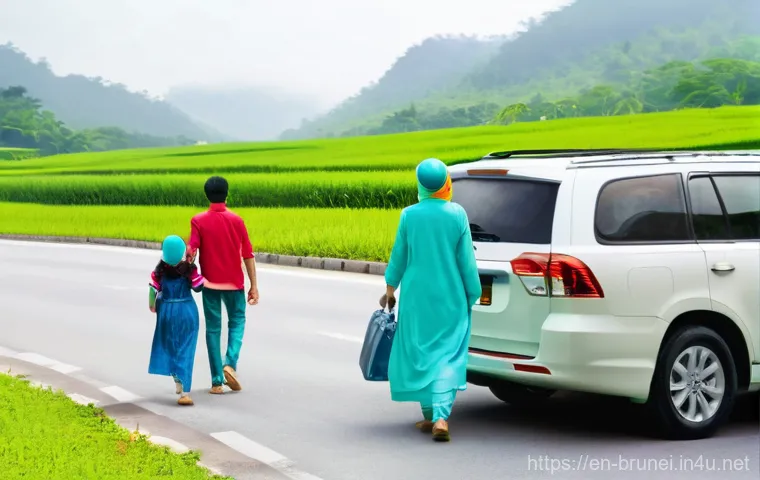
Beyond Black Gold: Planning for a Post-Oil Future
While the current situation with cheap fuel is fantastic for residents, Brunei’s leadership is acutely aware that oil and gas reserves are finite. This isn’t a secret, and they’re not burying their heads in the sand.
I’ve read and heard a lot about “Wawasan Brunei 2035,” the national vision to diversify the economy away from its heavy reliance on hydrocarbons. It’s a pragmatic and forward-thinking approach, recognizing that the current abundance won’t last forever.
Initiatives are underway to foster growth in sectors like Islamic finance, tourism, and food production, particularly halal food. This strategic shift is crucial for long-term stability and prosperity.
It’s about building a resilient economy that can thrive even when the oil wells eventually run dry, ensuring future generations can also enjoy a high quality of life, albeit one powered by different engines of growth.
Investing in Human Capital and New Industries
Part of this diversification strategy involves a significant investment in human capital. The government understands that a skilled workforce is essential for transitioning to a knowledge-based economy.
This means a strong emphasis on education, vocational training, and attracting foreign investment that brings new technologies and expertise. When I’ve spoken with younger Bruneians, there’s a palpable sense of anticipation about these new opportunities.
They’re not just expecting the status quo; they’re actively encouraged to innovate and contribute to these emerging sectors. It’s a dynamic period for the nation, balancing the comfort of its current resource wealth with the imperative to build a sustainable, diversified future.
This proactive approach to economic evolution is truly commendable and shows a deep commitment to the nation’s long-term well-being.
For the Curious Traveler: What Cheap Fuel Means for Visitors
Exploring Brunei on a Budget (Fuel-Wise, At Least!)
If you’re an international traveler considering a trip to Brunei, the incredibly cheap fuel is definitely something to factor into your plans, especially if you’re thinking of renting a car.
I can tell you from personal experience that the freedom of having practically limitless, affordable fuel significantly enhances the exploration experience.
You can drive to the beautiful Temburong District for an eco-adventure, explore the various mosques, or just cruise around Bandar Seri Begawan without a constant worry about fuel costs eating into your budget.
It frees up your travel funds for other experiences, like sampling delicious local cuisine or perhaps indulging in some unique Bruneian crafts. It transforms how you can plan your itinerary, encouraging longer drives and more expansive explorations than you might typically attempt in other high-fuel-cost destinations.
Renting a Car: A Cost-Effective Way to See the Sultanate
Given the low fuel prices and the excellent road infrastructure, renting a car is arguably one of the most cost-effective and convenient ways for tourists to get around Brunei.
Public transport options are somewhat limited outside of the main city areas, so having your own wheels gives you unparalleled flexibility. I found that the savings on fuel more than offset the rental car costs, especially for longer stays or for groups.
It allows you to venture off the beaten path, discover hidden gems, and truly immerse yourself in the local culture at your own pace. Just be mindful of local driving etiquette and enjoy the smooth, affordable ride.
This often-overlooked perk makes Brunei a surprisingly budget-friendly destination for those who love to explore independently.
Wrapping Things Up
And there you have it, folks – our journey through Brunei’s remarkably unique fuel economy. It’s truly been an eye-opening experience to delve into a place where the concept of ‘gas price anxiety’ is virtually non-existent.
We’ve explored how deeply these generous government subsidies are woven into the fabric of daily life, from making every commute a breeze to subtly influencing the cost of goods and services across the entire nation.
It’s a powerful testament to how a nation’s natural resources, when managed with a clear vision for its citizens’ welfare, can profoundly shape everyday realities.
As an ‘English blog influencer,’ I often search for those unique angles that truly make a destination stand out, and Brunei’s approach to energy certainly fits the bill.
It makes you pause and reflect on the intricate dance between policy, resources, and the quality of life, offering a fascinating contrast to the global energy landscape we usually navigate.
The proactive steps Brunei is taking with its Wawasan 2035 vision also add another layer of intrigue, showing a nation thoughtfully planning for a sustainable future beyond its current black gold abundance.
It’s a story of both present comfort and future foresight, and one I’m glad we could unravel together.
Good to Know for Your Brunei Adventure
1.
First things first, checking the latest visa requirements for your nationality before planning your trip to Brunei is always a smart move. While many countries, particularly those from ASEAN, the UK, and several others, enjoy visa-free entry for short stays, regulations can change. A quick check on the official Brunei Darussalam immigration website or through your embassy will save you any last-minute hassles. Remember, adhering to local laws and customs, even before you arrive, sets the tone for a respectful and enjoyable visit.
2.
Brunei uses the Brunei Dollar (BND), which is conveniently pegged at par with the Singapore Dollar (SGD), meaning they are interchangeable. While fuel is incredibly cheap, other costs, especially for imported goods or luxury items, can be comparable to or even higher than Western countries. Budgeting for accommodation and dining outside of local eateries should be done with this in mind, but you can definitely find affordable local food options that are absolutely delicious!
3.
As highlighted in the post, renting a car is hands down the most efficient and enjoyable way to explore Brunei. The excellent road infrastructure, coupled with the unbelievably low fuel prices, means you can traverse the Sultanate without breaking the bank. Public transport, particularly buses, has limited routes and frequency, especially outside the capital, Bandar Seri Begawan. For travelers who love independence and flexibility, a rental car is a non-negotiable must-have here.
4.
Brunei is a devoutly Muslim country, and showing respect for local customs and traditions is paramount. When visiting religious sites like mosques, ensure you’re dressed modestly, covering shoulders and knees, and women will often need to cover their hair (headscarves are usually provided). Even in general public spaces, a conservative dress approach is always appreciated. Understanding and respecting these nuances enriches your travel experience and fosters positive interactions with locals.
5.
The ideal time to visit Brunei is generally during the dry season, which typically runs from March to October. This period offers plenty of sunshine and lower humidity, perfect for exploring the lush rainforests of Temburong, cruising the Brunei River, or simply wandering through the capital. While Brunei isn’t known for its bustling nightlife, it offers serene natural beauty, impressive Islamic architecture, and a peaceful cultural experience that is truly unique in Southeast Asia. Don’t miss the opportunity to visit the iconic Sultan Omar Ali Saifuddien Mosque at dusk!
Key Insights from Brunei’s Fuel Story
Diving deep into Brunei’s fuel landscape truly paints a picture unlike anywhere else, revealing several critical insights. Primarily, the nation’s remarkably low petrol prices are a direct result of generous government subsidies, underpinned by its abundant domestic oil and gas production.
This unique economic policy isn’t merely a perk; it fundamentally shapes the cost of living and the daily rhythm for every Bruneian, making everything from daily commutes to the transportation of goods significantly more affordable.
However, this isn’t a story without foresight; the Bruneian government is proactively addressing the finite nature of these resources through its ‘Wawasan Brunei 2035’ vision, investing heavily in economic diversification across sectors like Islamic finance, tourism, and human capital development.
For any traveler eyeing this peaceful Sultanate, the incredibly cheap fuel transforms the travel experience, making car rental an exceptionally cost-effective and flexible way to explore its hidden gems and natural wonders.
Ultimately, Brunei stands as a compelling case study, showcasing how strategic resource management and dedicated citizen welfare can craft a remarkably stable and comfortable everyday existence, all while steering towards a diversified and sustainable future.
Frequently Asked Questions (FAQ) 📖
Q: What’s the real secret behind Brunei’s incredibly low fuel prices? I mean, it sounds almost too good to be true!
A: Oh, believe me, when I first heard about it, I had the same thought! But it’s absolutely true, and the “secret” isn’t really a secret at all – it’s all thanks to the Bruneian government’s generous, and frankly, long-standing, subsidy program.
This isn’t just a recent thing; these prices have been surprisingly stable for well over two decades! Because Brunei is an oil-rich nation, the government has been able to absorb a significant portion of the cost, ensuring that citizens and residents enjoy some of the cheapest petrol in the world.
We’re talking about prices so low – currently around BND 0.53 per liter for gasoline – that it often costs less than a bottle of water. I remember my first time filling up here, I literally did a double-take at the pump; it felt like I was getting away with something!
It’s not just fuel either; many essential services and commodities, like electricity, are also heavily subsidized, making daily life surprisingly affordable in many ways.
This immense investment, often exceeding BND 100 million annually, truly underpins the nation’s unique economic landscape.
Q: How do these super cheap fuel prices actually shape daily life and the overall vibe for people living in Brunei?
A: That’s a fantastic question because it shapes everything! When fuel is this affordable, it genuinely influences lifestyle choices and the rhythm of daily life.
For one, cars are absolutely king here. Public transportation exists, but honestly, it’s not widely used, partly because driving your own car is just so incredibly convenient and cheap.
You don’t think twice about hopping in your vehicle for even short distances, or taking a scenic drive around the country. I’ve found that it contributes to a really relaxed pace; less stress about commuting costs means more freedom.
From a personal perspective, it means more disposable income for other things – enjoying local eateries, exploring Brunei’s beautiful nature, or even saving up for bigger adventures.
Beyond the individual, these subsidies, along with free healthcare and other government support for housing and food, create a pretty substantial safety net.
However, on the flip side, I’ve observed that it can also lead to higher energy consumption per capita and perhaps less of an immediate incentive to think about alternative energy sources, which is a big topic of discussion as Brunei looks to its future.
Q: Considering its reliance on oil, what’s Brunei doing to prepare its economy for a future beyond hydrocarbons, and is it working?
A: Ah, the million-dollar question for any oil-dependent nation! Brunei’s leadership is incredibly forward-thinking in this regard, and they’ve actually laid out a comprehensive roadmap called “Wawasan Brunei 2035” or “Brunei Vision 2035.” It’s not just a fancy slogan; it’s a national blueprint to transform the country into one with highly educated and skilled people, a top-tier quality of life, and most importantly, a dynamic and sustainable economy that isn’t solely tied to oil and gas.
I’ve been really impressed by their commitment to diversify. They’re actively pouring investments and resources into key sectors like tourism and hospitality, Islamic finance, high-tech (including ICT), and even enhancing their “downstream” oil and gas operations to add more value.
What’s really compelling is their push for foreign direct investment (FDI), making it super attractive with low corporate taxes and opportunities for full foreign ownership in certain businesses.
While progress, as with any major national transformation, has its ups and downs and challenges like bureaucratic hurdles exist, I’m personally seeing tangible shifts.
The non-oil and gas sectors are definitely growing and contributing more to exports, which is a fantastic sign that Brunei is seriously building a more resilient and diversified economic future for its people.
